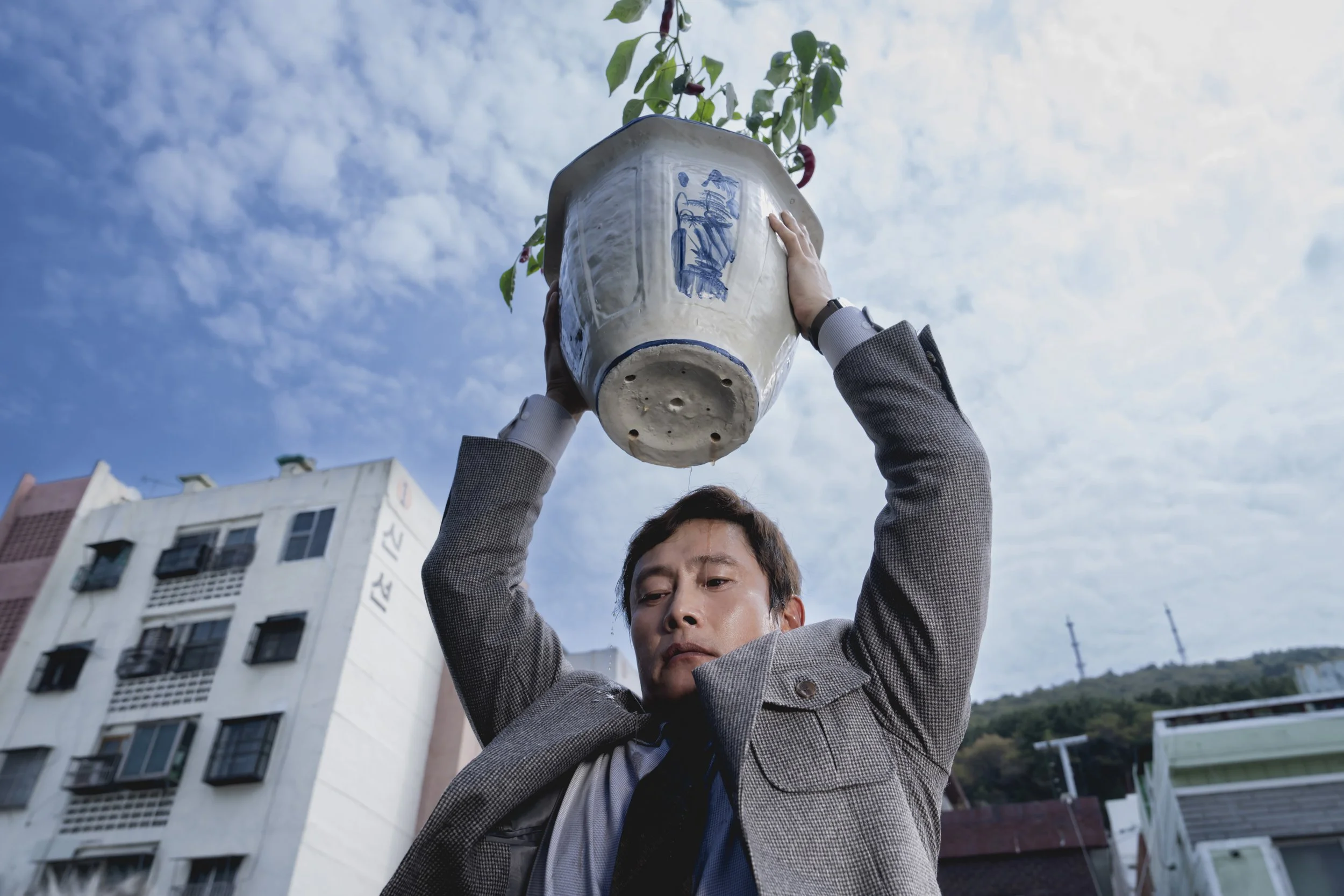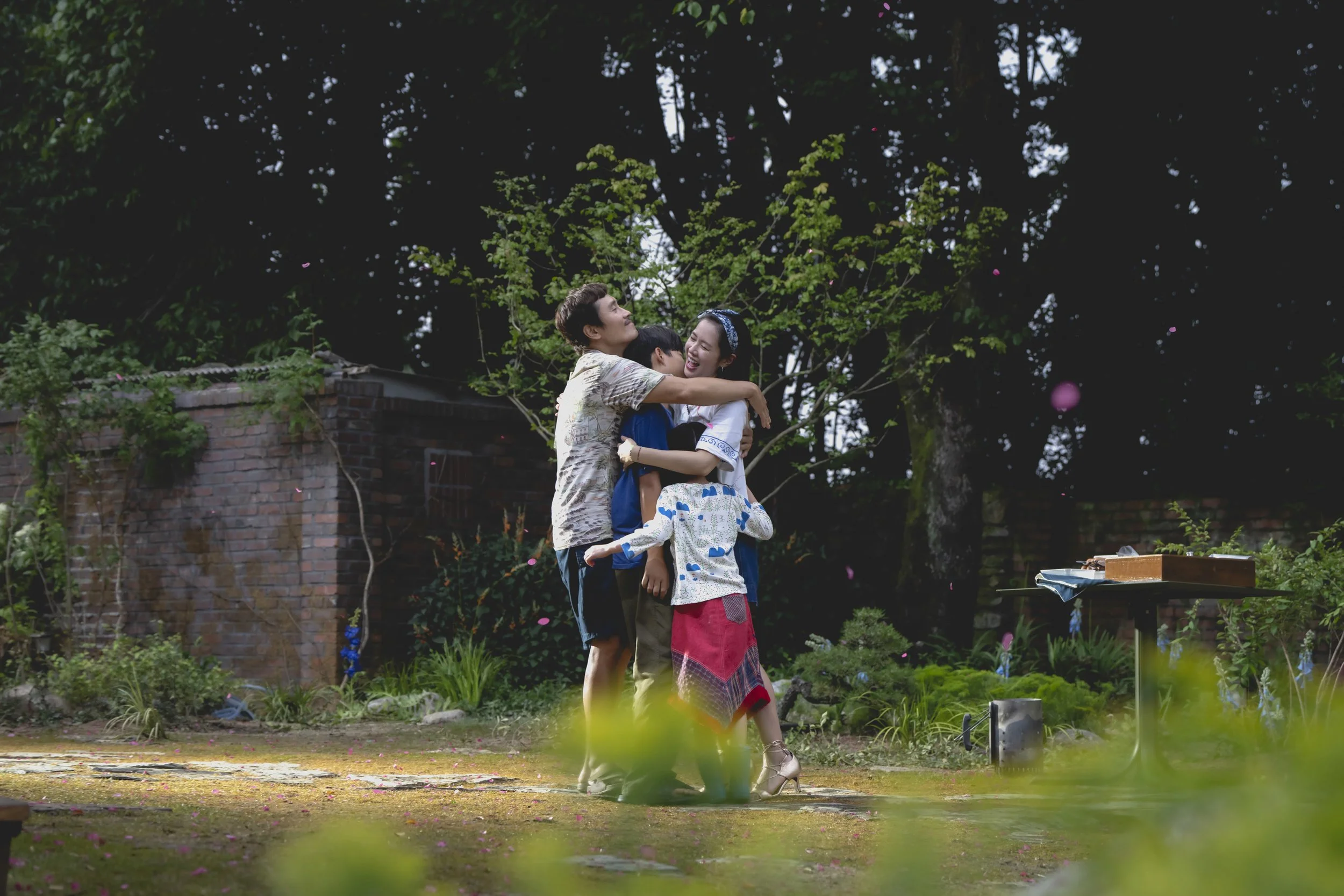No Other Choice Review: Lee Byung-hun is Unmissable in Park Chan-wook’s (Serial) Killer Anti-Capitalist Comedy
Venice Film Festival
The Oldboy director’s latest is a timely economic satire
by Alex Secilmis 2 September 2025
No Other Choice Review: Lee Byung-hun is Unmissable in Park Chan-wook’s (Serial) Killer Anti-Capitalist Comedy
© NEON
The evils of capitalism have been a red-hot topic at this year’s Venice Film Festival. Both absurdist comedy Bugonia and retro thriller Dead Man’s Wire follow a wronged working-class misfits kidnapping a big-money executive. In the press conference for Frankenstein, Jacob Elordi singled out “the men in suits” as the real monsters of the world. Park Chan-wook’s contribution to the discourse has a sharp, simple premise: desperately seeking employment, a family man (Lee Byung-hun) goes on a killing spree to eliminate his fellow applicants. Bringing new meaning to the phrase “job hunt”, No Other Choice is a gleefully demented examination of self-worth, masculinity, and the inherent violence of capitalism.
Man-su (Lee) has it all. In fact, he tells us as much verbatim in an idyllic autumnal scene that opens the film. Grilling some eel that his company gifted him, he caps off a perfect barbecue with a big family hug: embracing his wife, Miri (Son Ye-jin), their children Si-one and Ri-one, and their golden retrievers Si-two and Ri-two. The picturesque prologue falls to pieces when Man-su learns that the eel wasn’t a reward for good work, but a measly parting present. Just like that, the new American ownership fires him from his job at a paper mill after 25 years of service. His sympathetic wife assures him that he’ll find a job within three months, but over a year later, Man-su is faced with giving up his house, his dogs, and much more. The American owners told him they had “no other choice” but to fire him, and now he repeats the three-word mantra as he becomes a mass murderer.
© NEON
The second film to adapt the 1997 novel The Ax, No Other Choice updates Donald E. Westlake’s story to navigate a world where AI is replacing expert craftsmanship. Still, the focus is entirely on the emasculation of Man-su’s unemployment and the toll it takes on his marriage. The film is so darkly alluring because Chan-wook is entirely uninterested in his protagonist’s guilt. The framing of Man-su’s actions as an almost logical response gives No Other Choice the morbid flavour of a psychological thriller blended with a fable.
© NEON
Even though Chan-wook doesn’t linger on Man-su’s guilt, the film is very much a character study. In a demanding role defined by an ego that fractures and heals repeatedly, Lee Byung-hun carries the film with a skilfully layered performance, keeping the audience tethered to Man-su even in his darkest moments. At his side, Son Ye-jin is equally riveting as a woman trying to support her husband emotionally and her family financially.
Balancing comedy and tragedy on a knife’s edge, No Other Choice is a gruesome, hilarious, and ultimately devastating capitalism satire. It’s nothing short of a must-see, and the choice to catch it in theatres should be as obvious as Man-su’s.
No Other Choice Review: Lee Byung-hun is Unmissable in Park Chan-wook’s (Serial) Killer Anti-Capitalist Comedy
Venice Film Festival
The Oldboy director’s latest is a timely economic satire
by Alex Secilmis 2 September 2025
© NEON
The evils of capitalism have been a red-hot topic at this year’s Venice Film Festival. Both absurdist comedy Bugonia and retro thriller Dead Man’s Wire follow a wronged working-class misfits kidnapping a big-money executive. In the press conference for Frankenstein, Jacob Elordi singled out “the men in suits” as the real monsters of the world. Park Chan-wook’s contribution to the discourse has a sharp, simple premise: desperately seeking employment, a family man (Lee Byung-hun) goes on a killing spree to eliminate his fellow applicants. Bringing new meaning to the phrase “job hunt”, No Other Choice is a gleefully demented examination of self-worth, masculinity, and the inherent violence of capitalism.
Man-su (Lee) has it all. In fact, he tells us as much verbatim in an idyllic autumnal scene that opens the film. Grilling some eel that his company gifted him, he caps off a perfect barbecue with a big family hug: embracing his wife, Miri (Son Ye-jin), their children Si-one and Ri-one, and their golden retrievers Si-two and Ri-two. The picturesque prologue falls to pieces when Man-su learns that the eel wasn’t a reward for good work, but a measly parting present. Just like that, the new American ownership fires him from his job at a paper mill after 25 years of service. His sympathetic wife assures him that he’ll find a job within three months, but over a year later, Man-su is faced with giving up his house, his dogs, and much more. The American owners told him they had “no other choice” but to fire him, and now he repeats the three-word mantra as he becomes a mass murderer.
© NEON
The second film to adapt the 1997 novel The Ax, No Other Choice updates Donald E. Westlake’s story to navigate a world where AI is replacing expert craftsmanship. Still, the focus is entirely on the emasculation of Man-su’s unemployment and the toll it takes on his marriage. The film is so darkly alluring because Chan-wook is entirely uninterested in his protagonist’s guilt. The framing of Man-su’s actions as an almost logical response gives No Other Choice the morbid flavour of a psychological thriller blended with a fable.
© NEON
Even though Chan-wook doesn’t linger on Man-su’s guilt, the film is very much a character study. In a demanding role defined by an ego that fractures and heals repeatedly, Lee Byung-hun carries the film with a skilfully layered performance, keeping the audience tethered to Man-su even in his darkest moments. At his side, Son Ye-jin is equally riveting as a woman trying to support her husband emotionally and her family financially.
Balancing comedy and tragedy on a knife’s edge, No Other Choice is a gruesome, hilarious, and ultimately devastating capitalism satire. It’s nothing short of a must-see, and the choice to catch it in theatres should be as obvious as Man-su’s.


